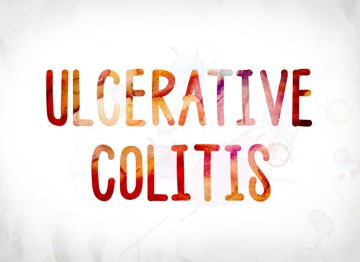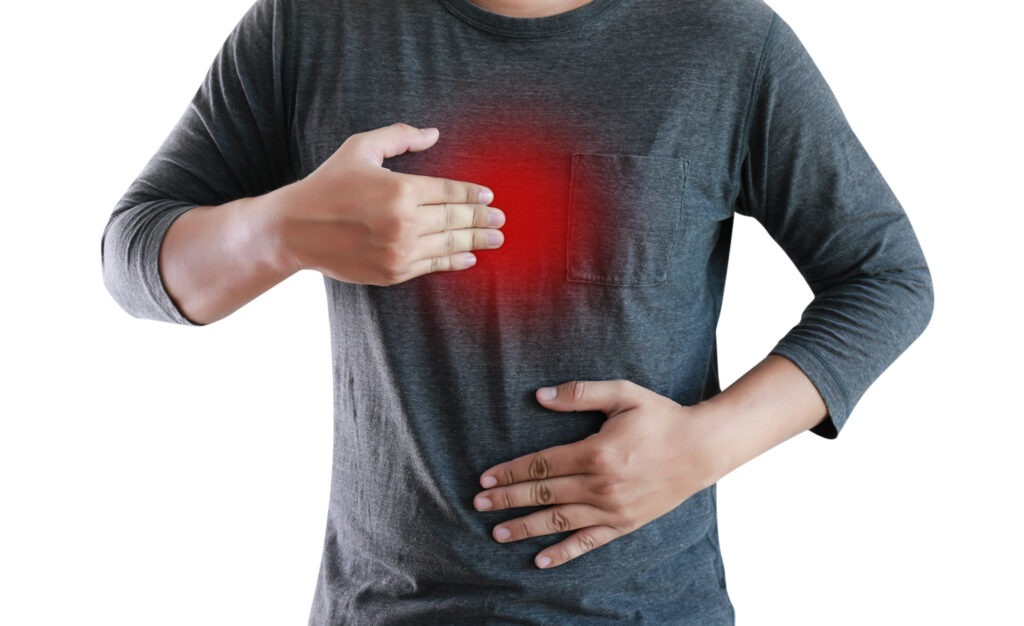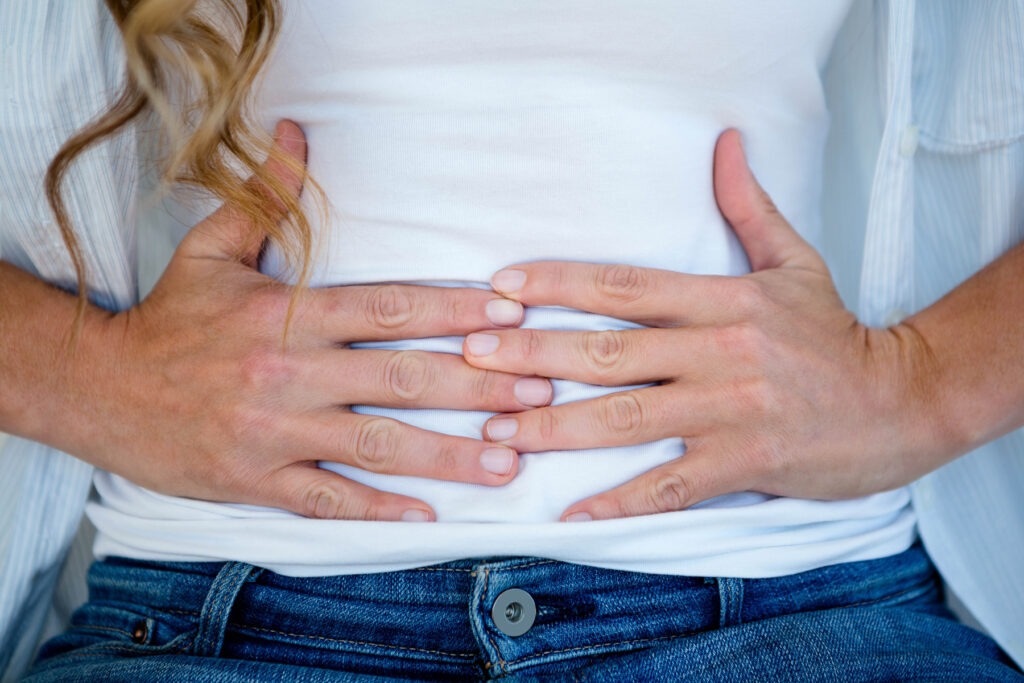by urban-acupuncture | Oct 1, 2023 | Acupuncture
Ulcerative Colitis Treatment with Acupuncture
 Are you sick and tired of living with ulcerative colitis’ painful symptoms? Looking for a safe, efficient natural remedy to relieve your discomfort? Acupuncture might be the solution you are looking for! This age-old Chinese healing method has become well-known throughout the world for its capacity to alleviate a number of medical ailments, including ulcerative colitis. In this article, we will explore how acupuncture can help reduce the symptoms of ulcerative colitis and improve your overall well-being.
Are you sick and tired of living with ulcerative colitis’ painful symptoms? Looking for a safe, efficient natural remedy to relieve your discomfort? Acupuncture might be the solution you are looking for! This age-old Chinese healing method has become well-known throughout the world for its capacity to alleviate a number of medical ailments, including ulcerative colitis. In this article, we will explore how acupuncture can help reduce the symptoms of ulcerative colitis and improve your overall well-being.
Understanding Ulcerative Colitis
Ulcerative colitis is a chronic inflammatory bowel disease that primarily affects the colon and rectum. It can result in symptoms like weariness, rectal bleeding, abdominal pain, and diarrhea, all of which have a substantial negative effect on a person’s quality of life. Some people seek alternative therapies like acupuncture to supplement their current treatment programs, even while conventional therapy like drugs and lifestyle changes can help control the illness.
How Acupuncture Works
The idea behind acupuncture is to balance the body’s life force, referred to as Qi (pronounced “chee”). Traditional Chinese medicine holds that an imbalance or obstruction in the Qi flows along the body’s meridians is the cause of illness and pain. By placing tiny needles into particular acupuncture points and activating the body’s natural healing process, acupuncture tries to restore this equilibrium.
Alleviating Inflammation and Pain
Chronic colon inflammation is the hallmark of ulcerative colitis. By encouraging the release of endorphins, which are the body’s natural painkillers, acupuncture can help reduce inflammation. This therapy can boost the body’s ability to recover and lessen ulcerative colitis pain by focusing on certain acupuncture sites to stimulate blood flow and lymphatic drainage.
Regulating the Immune System
Acupuncture has been demonstrated to control the immune system, which is vital in ulcerative colitis, in addition to lowering inflammation. Acupuncture can assist in lowering the excessive immune response that is present in this illness by modifying immunological responses, which lessens the severity of symptoms and encourages long-term healing.
Enhancing Digestive Function
Intense abdominal pain and irregular bowel motions can result from ulcerative colitis, which can interfere with the digestive system’s normal operation. Bloating, gas, and diarrhea symptoms can be reduced by acupuncture, which can also assist in controlling gastrointestinal motility, enhancing digestion, and improving digestion. Acupuncture enhances overall gut health by reestablishing the digestive system’s balance and fostering a sense of well-being.
Conclusion
Acupuncture can relieve pain and complement your current treatment plan by reducing inflammation, balancing the immune system, and improving digestive function. Contact a qualified acupuncturist to discuss your options for a safe and efficient natural ulcerative colitis treatment. Keep in mind that the first step on your path to better health is discovering what options acupuncture has to offer.
Contact Urban Acupuncture Center in Columbus, OH For More Information
For more information about how acupuncture, massage therapy and other alternative healing treatments can help you, please contact the Urban Acupuncture Center Board Certified Licensed Acupuncturist’s team at Indianola Ave, Columbus, Ohio (Clintonville) (614) 725-2488 or click here. Taking new patients in and around greater Columbus, Ohio.
by urban-acupuncture | Sep 5, 2023 | Acupuncture
Acid Reflux Treatment
 Acid reflux, or gastroesophageal reflux disease (GERD), is a specific condition marked by stomach acid flowing back into the esophagus, causing discomfort with other symptoms. There are a variety of treatments available, but acupuncture has gained some recognition as a complementary therapy to reduce acid reflux symptoms. Acupuncture stimulates certain acupuncture body points, and aids in rebalancing the body.
Acid reflux, or gastroesophageal reflux disease (GERD), is a specific condition marked by stomach acid flowing back into the esophagus, causing discomfort with other symptoms. There are a variety of treatments available, but acupuncture has gained some recognition as a complementary therapy to reduce acid reflux symptoms. Acupuncture stimulates certain acupuncture body points, and aids in rebalancing the body.
Acid Reflux and Acupuncture
Acupuncture treatment for acid reflux involves focusing on points in the spleen, stomach, and liver areas. These points are selected to regulate the production of stomach acid, enhance digestion, lessen inflammation, promoting general gastrointestinal health. The root cause is taken care of by the stimulation of particular bodily points.
Research states that acupuncture has a positive effect on acid reflux symptoms. Reports show that acupuncture treatments reduce the severity and frequency of acid reflux episodes, boost esophageal function, and relieve heartburn as well as regurgitation. Acupuncture may also strengthen the low area of the esophageal sphincter, the muscle that is responsible for the prevention of stomach acid flowing back into the esophagus.
Benefits
In addition to resolving the physical aspects of acid reflux, acupuncture also results in relaxation/stress reduction. Stress may exacerbate symptoms of acid reflux, and acupuncture alleviates stress and promotes well-being. Acupuncture can stimulate the release of endorphins, reducing stress hormones. In this way, the affected person becomes calm in mind and body.
Acupuncture must be used as a complementary therapy with other specific recommended therapies for acid reflux. This may comprise dietary changes, lifestyle modifications, and medication, as prescribed by a doctor or other healthcare expert. Consulting with a certified/licensed acupuncturist specializing in gastrointestinal disorders is vital to develop a customized treatment plan aligned with unique symptoms and needs.
Contact Urban Acupuncture Center in Columbus, OH For More Information
For more information about how acupuncture, massage therapy and other alternative healing treatments can help you, please contact the Urban Acupuncture Center Board Certified Licensed Acupuncturist’s team at Indianola Ave, Columbus, Ohio (Clintonville) (614) 725-2488 or click here. Taking new patients in and around greater Columbus, Ohio.
by urban-acupuncture | Sep 1, 2023 | Acupuncture
Crohn’s Disease Treatment
 Crohn’s disease, a chronic inflammatory bowel disease, affects the digestive tract, leading to abdominal pain, fatigue, diarrhea, and weight loss. There is no cure, but acupuncture is recognized as a complementary treatment to manage symptoms. Acupuncture is an ancient practice that inserts fine needles in the body, and by the stimulation these offer, manages symptoms of inflammation, pain, digestion, etc.
Crohn’s disease, a chronic inflammatory bowel disease, affects the digestive tract, leading to abdominal pain, fatigue, diarrhea, and weight loss. There is no cure, but acupuncture is recognized as a complementary treatment to manage symptoms. Acupuncture is an ancient practice that inserts fine needles in the body, and by the stimulation these offer, manages symptoms of inflammation, pain, digestion, etc.
What Acupuncture Does
Acupuncture is said to maintain and restore balance in anyone’s body. During times of illness and pain, the bodies balance becomes disturbed. To get this balance, or Qi, back on track, Acupuncture is used. The principle of acupuncture is to insert needles along designated energy pathways all over the body, depending on the illness or condition.
A Plethora of Benefits – Acupuncture Works!
Among some of the main benefits that are derived from acupuncture, is one that makes it possess the potential to minimize inflammation. The immune system is regulated and substances that cause inflammation are reduced. With regard to Crohn’s disease, fine needles are inserted in the areas of the large intestine and stomach.
Getting Rid of Pain
Most conditions are marked by symptoms of pain, and Crohn’s disease is not to be left out. The abdominal discomfort caused by this condition can be excruciating. In our bodies, we have natural pain-relieving chemicals, certain hormones called endorphins. When acupuncture is undertaken, these are released in the body, and they alleviate pain.
Giving Digestion a Boost
Another advantage of acupuncture in the treatment of Crohn’s disease is its role in improving digestion. Acupuncture promotes healthy muscle contractions within the digestive tract (good peristalsis), and regulates bowel movements. This alleviates symptoms like constipation and diarrhea, improving digestive functioning.
Don’t Let Crohn’s Disease Drain You Out!
Anyone living with Crohn’s disease knows how painful it can be, both mentally and physically. More and more patients seek alternate forms of therapy to alleviate symptoms and complement conventional medicine. While there are not enough studies to prove the efficacy of acupuncture, the stories people tell validate the procedure as effective and curative. Its something everyone should try, but make sure you consult your medical practitioner in advance.
Contact Urban Acupuncture Center in Columbus, OH For More Information
For more information about how acupuncture, massage therapy and other alternative healing treatments can help you, please contact the Urban Acupuncture Center Board Certified Licensed Acupuncturist’s team at Indianola Ave, Columbus, Ohio (Clintonville) (614) 725-2488 or click here. Taking new patients in and around greater Columbus, Ohio.
by urban-acupuncture | Aug 5, 2023 | Acupuncture
Needle Your Way to Relief: How Acupuncture Can Help Treat IBS Symptoms
 Irritable bowel syndrome (IBS) is a chronic gastrointestinal disorder that affects millions of people worldwide. Its symptoms can be diverse and range from abdominal pain and bloating to diarrhea and constipation. Although there are various treatments available for IBS, not all individuals may find relief from conventional therapies. In recent years, alternative therapies such as acupuncture have gained popularity as a complementary treatment option for IBS.
Irritable bowel syndrome (IBS) is a chronic gastrointestinal disorder that affects millions of people worldwide. Its symptoms can be diverse and range from abdominal pain and bloating to diarrhea and constipation. Although there are various treatments available for IBS, not all individuals may find relief from conventional therapies. In recent years, alternative therapies such as acupuncture have gained popularity as a complementary treatment option for IBS.
Acupuncture is a medical practice that involves the insertion of thin needles into specific points of the body to stimulate healing. This technique has a positive effect on the nervous system, immune system, and digestive system, all of which can be involved in IBS. In this post, we’ll explore how acupuncture works, the research on its effectiveness for IBS, and what to expect during an acupuncture session.
Research on acupuncture for IBS
Several clinical trials and meta-analyses have investigated the effectiveness of acupuncture for IBS. While the results have been somewhat positive, some studies have found that acupuncture can help relieve IBS symptoms. For instance, a systematic review and meta-analysis of randomized controlled trials found that acupuncture was superior to sham acupuncture and pharmacological treatments in reducing IBS symptoms.
There should be more research to determine the optimal acupuncture protocol for IBS, including the number and frequency of treatments. Overall, acupuncture appears to be a promising complementary therapy for IBS, but its effectiveness may vary depending on the individual.
The acupuncture session
Before an acupuncture session, the practitioner will typically conduct an initial consultation to assess the patient’s overall health and medical history. During the treatment, the patient will lie down or sit comfortably while the acupuncturist inserts thin, sterile needles into specific points on the body. The needles are left in place for about 20–30 minutes while the patient relaxes. Some people may feel a mild tingling or numbing sensation, while others may feel nothing at all. After the needles are removed, the acupuncturist may recommend certain lifestyle modifications, such as dietary changes or stress reduction techniques, to help improve the patient’s overall health.
Treatment
Acupuncture can be a valuable complementary therapy for individuals with IBS. Although research on its effectiveness has produced mixed results, acupuncture can alleviate IBS symptoms for many people. A reliable acupuncture center can play a crucial role in helping individuals with IBS manage their symptoms effectively.
Acupuncture is a specialized technique that requires significant knowledge and training. It’s important to seek treatment from licensed practitioners who have expertise in treating IBS. Quality acupuncture centers can provide a safe and comfortable environment for patients to receive treatment, with properly sterilized needles and appropriate facilities.
In addition, these centers can help guide patients through the process of receiving acupuncture, from the initial consultation to post-treatment care. By choosing a reputable acupuncture center, individuals with IBS can have confidence in their treatment and feel more in control of their symptoms.
Contact Urban Acupuncture Center in Columbus, OH For More Information
For more information about how acupuncture, massage therapy and other alternative healing treatments can help you, please contact the Urban Acupuncture Center Board Certified Licensed Acupuncturist’s team at Indianola Ave, Columbus, Ohio (Clintonville) (614) 725-2488 or click here. Taking new patients in and around greater Columbus, Ohio.
by urban-acupuncture | Aug 1, 2023 | Acupuncture
Constipation Treatment

Acupuncture happens to be a form of traditional medicine originating in China that has been used for centuries to treat different types of of ailments, including constipation. Constipation is a common problem that affects millions of people worldwide. If left untreated, it can lead to more serious health problems. Fortunately, the treatment can be an effective treatment for constipation.
We will discuss how this technique can be used to treat constipation and why you should consider scheduling an appointment with the Urban Acupuncture Center for this treatment.
How Does Acupuncture Treat Constipation?
Acupuncture happens to be an effective treatment for constipation because it works by stimulating the digestive system. The needles are inserted at certain points of the body, which are believed to correspond to different organs and functions in the body. By stimulating these points, acupuncture can help to improve digestive function and relieve constipation.
Acupuncture has also been shown to help regulate the nervous system, which can play a role in constipation. The nervous system controls the contractions of the colon and rectum, which are necessary for bowel movements. When the nervous system is not functioning properly, it can lead to constipation. Acupuncture can help to regulate the nervous system, which can improve bowel movements and relieve constipation.
Benefits of Acupuncture for Constipation
Acupuncture has a range of benefits for constipation, including:
It is a safe and natural treatment for constipation that does not involve the use of drugs or surgery. This makes it a good option for people who prefer natural treatments or who cannot tolerate medication.
Effective Relief
Acupuncture has been shown to be effective in relieving constipation. Studies have found that acupuncture can improve bowel movements and relieve constipation symptoms.
Holistic Approach
Acupuncture takes a holistic approach to healing, which means that it treats the whole person, not just the symptoms of constipation. This can lead to long-term improvements in digestive health and overall well-being.
Why Choose Urban Acupuncture Center for Acupuncture Treatment?
If you are suffering from constipation and are looking for an effective treatment option, the Urban Acupuncture Center can help. Our team of licensed and experienced acupuncturists can provide you with quality treatment for constipation using acupuncture.
We offer a personalized approach to treatment, tailoring our approach to meet your individual needs and goals. Our center is equipped with state-of-the-art equipment, and we use only the highest quality needles and other equipment for your safety and comfort. To schedule an appointment with us, visit our website or give us a call today. We look forward to helping you achieve better digestive health and overall well-being through acupuncture.
Contact Urban Acupuncture Center in Columbus, OH For More Information
For more information about how acupuncture, massage therapy and other alternative healing treatments can help you, please contact the Urban Acupuncture Center Board Certified Licensed Acupuncturist’s team at Indianola Ave, Columbus, Ohio (Clintonville) (614) 725-2488 or click here. Taking new patients in and around greater Columbus, Ohio.
by urban-acupuncture | Jul 5, 2023 | Acupuncture
Needle Away Bloating: How Acupuncture Can Help You Feel Lighter and Healthier

Bloating is a common digestive issue that can cause discomfort and even pain. It occurs when excess gas builds up in the stomach and intestines, making the abdomen feel swollen and full. While bloating is often the result of consuming certain foods or drinks, it can also be a symptom of underlying health conditions. If you suffer from bloating, you should explore natural remedies to alleviate the discomfort.
Acupuncture is now gaining acceptance in the mainstream medical community as a modern scientific process. It is increasingly being recognized as a valid medical therapy on its own. The World Health Organization (WHO) has endorsed it for over 100 conditions, including digestive disorders.
How Acupuncture Can Help Reduce Bloating
Acupuncture is a process that stimulates the nervous system and triggers a series of physiological responses that can help reduce bloating. Acupuncture points are typically located along nerve pathways, and inserting needles at these points, can activate the nerves and stimulate the release of various neurotransmitters and hormones. For example, acupuncture can stimulate the release of endorphins, which are natural painkillers that can help reduce inflammation and alleviate discomfort associated with bloating.
It can also activate the parasympathetic nervous system, which is responsible for controlling digestion and relaxation. By stimulating this system, acupuncture can promote digestive motility and reduce the buildup of gas in the intestines. Additionally, acupuncture can regulate the levels of serotonin, a neurotransmitter that helps control intestinal contractions and can help reduce bloating. So, acupuncture can help reduce bloating by modulating the nervous system, promoting digestive motility, and reducing inflammation.
What to Expect During an Acupuncture Session for Bloating
First, the acupuncturist will typically ask you about your medical history, including any digestive issues you may have. They may also ask you about your diet and lifestyle habits to better understand the underlying causes of your bloating. Next, the acupuncturist will locate the acupoints specific to your condition and insert thin needles into these points.
You may feel a slight pinch or pressure as the needles are inserted, but it is painless. The needles will remain in place for 20–30 minutes while you rest comfortably. Some acupuncturists may also use other techniques, such as cupping, to enhance the effects of the treatment. After the session, you may feel relaxed and refreshed, and you may notice a reduction in bloating over time.
Treatment
Acupuncture is a safe and effective alternative treatment for bloating. By stimulating the nervous system, and reducing inflammation, it can help alleviate bloating symptoms and improve overall gastrointestinal health. If you’re suffering from bloating, consider consulting with a licensed acupuncturist to explore the benefits of this natural therapy.
Contact Urban Acupuncture Center in Columbus, OH For More Information
For more information about how acupuncture, massage therapy and other alternative healing treatments can help you, please contact the Urban Acupuncture Center Board Certified Licensed Acupuncturist’s team at Indianola Ave, Columbus, Ohio (Clintonville) (614) 725-2488 or click here. Taking new patients in and around greater Columbus, Ohio.
 Are you sick and tired of living with ulcerative colitis’ painful symptoms? Looking for a safe, efficient natural remedy to relieve your discomfort? Acupuncture might be the solution you are looking for! This age-old Chinese healing method has become well-known throughout the world for its capacity to alleviate a number of medical ailments, including ulcerative colitis. In this article, we will explore how acupuncture can help reduce the symptoms of ulcerative colitis and improve your overall well-being.
Are you sick and tired of living with ulcerative colitis’ painful symptoms? Looking for a safe, efficient natural remedy to relieve your discomfort? Acupuncture might be the solution you are looking for! This age-old Chinese healing method has become well-known throughout the world for its capacity to alleviate a number of medical ailments, including ulcerative colitis. In this article, we will explore how acupuncture can help reduce the symptoms of ulcerative colitis and improve your overall well-being.
 Acid reflux, or gastroesophageal reflux disease (GERD), is a specific condition marked by stomach acid flowing back into the esophagus, causing discomfort with other symptoms. There are a variety of treatments available, but acupuncture has gained some recognition as a complementary therapy to reduce acid reflux symptoms. Acupuncture stimulates certain acupuncture body points, and aids in rebalancing the body.
Acid reflux, or gastroesophageal reflux disease (GERD), is a specific condition marked by stomach acid flowing back into the esophagus, causing discomfort with other symptoms. There are a variety of treatments available, but acupuncture has gained some recognition as a complementary therapy to reduce acid reflux symptoms. Acupuncture stimulates certain acupuncture body points, and aids in rebalancing the body. Crohn’s disease, a chronic inflammatory bowel disease, affects the digestive tract, leading to abdominal pain, fatigue, diarrhea, and weight loss. There is no cure, but acupuncture is recognized as a complementary treatment to manage symptoms. Acupuncture is an ancient practice that inserts fine needles in the body, and by the stimulation these offer, manages symptoms of inflammation, pain, digestion, etc.
Crohn’s disease, a chronic inflammatory bowel disease, affects the digestive tract, leading to abdominal pain, fatigue, diarrhea, and weight loss. There is no cure, but acupuncture is recognized as a complementary treatment to manage symptoms. Acupuncture is an ancient practice that inserts fine needles in the body, and by the stimulation these offer, manages symptoms of inflammation, pain, digestion, etc. Irritable bowel syndrome (IBS) is a chronic gastrointestinal disorder that affects millions of people worldwide. Its symptoms can be diverse and range from abdominal pain and bloating to diarrhea and constipation. Although there are various treatments available for IBS, not all individuals may find relief from conventional therapies. In recent years, alternative therapies such as acupuncture have gained popularity as a complementary treatment option for IBS.
Irritable bowel syndrome (IBS) is a chronic gastrointestinal disorder that affects millions of people worldwide. Its symptoms can be diverse and range from abdominal pain and bloating to diarrhea and constipation. Although there are various treatments available for IBS, not all individuals may find relief from conventional therapies. In recent years, alternative therapies such as acupuncture have gained popularity as a complementary treatment option for IBS.
